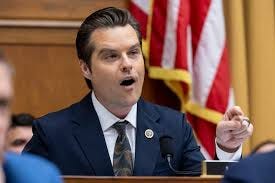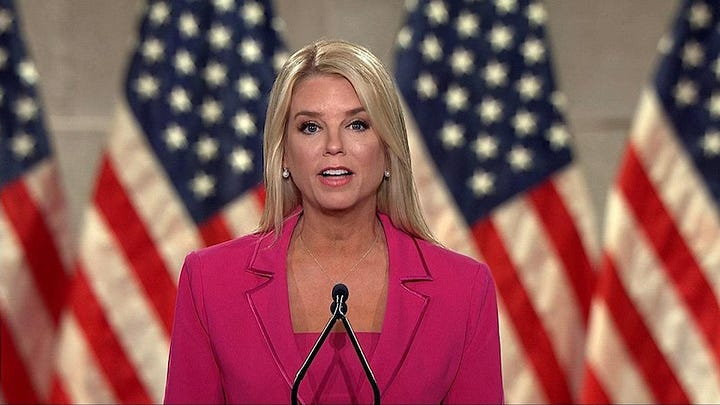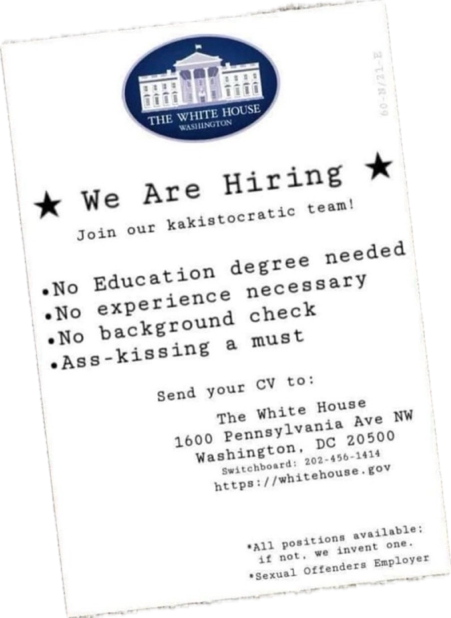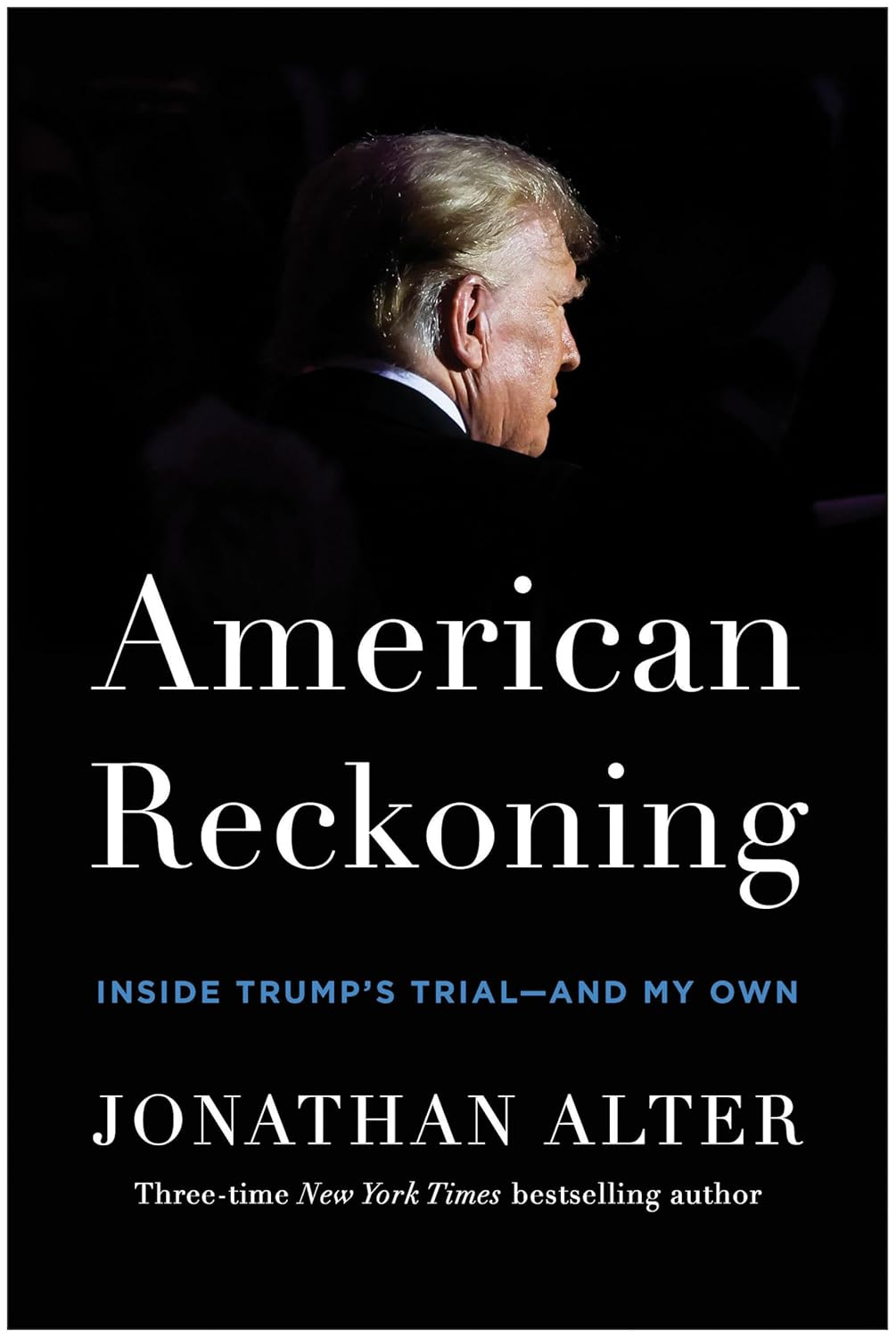All the President’s Menaces
Building on the rejection of Gaetz with some tough confirmation questions for other nominees


While working on my biography of Jimmy Carter in 2016, I had a revealing conversation with Rosalynn Carter — the political brains of the Carter family — about the ill-fated nomination of Theodore Sorensen to be Carter’s CIA director. Sorensen, who had been President Kennedy’s top aide, ran into trouble in the Democratic-controlled senate in early 1977 when his status as a conscientious objector during World War II came to public attention. He also took heat for supposedly taking home classified documents a dozen years earlier when preparing his book about JFK, a charge that turned out to be false.
Under pressure from Democratic senators, Carter withdrew Sorensen’s nomination before it came to a vote. Now, nearly 40 years later, Rosalynn told me that was a mistake. It suggested the new president could be rolled. “Jimmy should have had them vote,” she said, even if the nomination failed.
It pains me to mention Ted Sorensen and Matt Gaetz in the same sentence. Sorensen was a strait-laced and erudite Nebraskan, not a hateful fool who’s lucky he’s not in jail for statutory rape. But even though the Washington of 1977 and the Washington of today have little in common — even though Jimmy Carter was the ultimate unTrump and Donald Trump the ultimate unCarter — the power principle Rosalynn articulated still applies.
When Trump called Gaetz and told him, “You don’t have the votes” to be confirmed as attorney general, he was simultaneously bending to political reality and acknowledging that he cannot so easily become a dictator. I was half-expecting that Trump would give the Senate the middle finger and push Gaetz through as a recess appointment. Instead, he nominated former Florida Attorney General Pam Bondi, an election denier who will almost certainly be confirmed and will do precisely what Trump tells her to do without Gaetz’s antics and Republican enemies.
Even so, the withdrawal of Gaetz’s nomination still represents a significant, though hardly decisive, early loss for Trump. As Anne Applebaum and others remind us, authoritarians rely on despair and resignation for the submission they need to thrive. Having stood up once, a few hardy Republicans can stand up again. Contrary to some erroneous punditry, the rejection of Gaetz doesn’t inoculate Trump’s other picks. Instead it increases the likelihood of one or two more confirmation fights ahead. Once “anticipatory obedience” cracks, the whole fascist project—while still alive— begins to give way to the imperatives of conventional politics.
An important if little-noticed moment in the struggle to avoid autocracy came late last week when Alaska Sen. Lisa Murkowski said she wouldn’t vote for any nominee the FBI had not vetted. My guess is that it won’t be hard for Murkowski to get three of her Republican colleagues to go along with this eminently reasonable view of what’s necessary to staff the upper reaches of the federal government.
So much for Trump’s view that he can heedlessly nominate for secretary of defense (Pete Hegseth) a man credibly accused of sexual assault, or for director of national intelligence (Tulsi Gabbard) a woman whom Hillary Clinton credibly said was being “groomed” by the Russians. Elections have consequences. But so does overreaching when you won by less than two points, have slim congressional majorities and—for all the bluster—are a lame duck.
Will Iowa Sen. Joni Ernst, a veteran with a record of speaking out about sexual assault in the military, bend to Trump on Hegseth? How about Sen. Mike Rounds, a hardliner on Ukraine? Will Mitch McConnell, who despises Trump and doesn’t much care for conspiracy theories about how Bashir Assad didn’t really use chemical weapons, kiss Trump’s ring and vote for Gabbard? Will Robert F. Kennedy Jr.’s nomination for secretary of Health and Human Services and Russell Vought’s for director of the Office of Management and Budget face real flak? We’ll find out in about six weeks, but I’m feeling better about the answers to these questions.
Trump is still threatening to use recess appointments as a extra-constitutional workaround. To pull that off, he would have to get the Senate to give up one of its most significant powers — “advice and consent” on presidential nominations. It’s possible this could happen. As Robert Byrd, the late Senate Majority Leader, once thundered on the floor: “Julius Caesar did not seize power; the Roman Senate ceded power to Caesar.”
More likely, the Senate will hold firm to its prerogatives. Trump will then try to use a little-known part of the Constitution that allows the president to adjourn Congress (and thus make recess appointments) if the two chambers don’t agree on when to recess. But he would have to twist that clause beyond recognition, which even a conservative Supreme Court might be loathe to back him on. (It’s easy to forget that over the years the high court has ruled against him many times). And Trump’s margin for getting to House to take on the Senate will be very tight. To win, Trump would need almost all Republican House members to agree to turn the Senate into an impotent debating society.
Would they do that? There’s always been tension between the two houses of Congress — and Elon Musk will threaten House members with a primary challenge if they don’t bow to their Dear Leader — but pulling this off won’t be easy for Trump. Many House members dream of being senators, so at least half a dozen might hesitate before castrating the upper chamber. Why give up your House seat and dial-for-dollars 24/7 for your senate campaign only to arrive in a new job that is suddenly powerless?
The most likely outcome is that the Senate confirms all of Trump’s nominees except Hegseth and Gabbard, thereby avoiding a constitutional crisis on recess appointments. (This would be a standard success rate for new presidents). In the meantime, here are a few questions for senators in both parties to ask during confirmation hearings in January:
“Ms. Bondi: You said, ‘The prosecutors will be prosecuted, the bad ones, and the investigators will be investigated.’ On what grounds? What laws did these prosecutors break? You’ve said President Biden was wrong to use the DOJ to go after President Trump. If it was wrong and illegal to do that, why isn't it wrong and illegal for you to do the same thing? Do two wrongs make a right?
“Mr. Hegseth: You have said, ‘NATO is a great example of dumb globalism.’ Do you understand that a big part of your job is to coordinate with our allies on the defense of the West?”
“Mr. Hegseth: The combination of your complete lack of management experience and demeaning of women would prevent a business from hiring you as CEO. Why should running the Pentagon be different?
“Mr. Hegseth: You have called for a ‘holy war’ and ‘crusade’ against the Left and said that Americans should be governed not by law but by God. How is any of that constitutional?”
“Mr. Hegseth: You have written that vaccines are ‘poisonous’; climate change is a hoax; George Floyd died of a drug overdose; and the Holocaust was perpetrated by ‘German socialists.’ Please explain your views.”
“Ms. Gabbard: How can you do your job as director of national intelligence if our allies don’t trust you enough to share intelligence?”
“Mr. Kennedy: You claim in your book that Bill Gates, whose foundation dramatically increased life expectancy in Africa, personally profited from Covid. What is your evidence for that serious charge?”
“Mr. Kennedy: You admiringly quote a conspiracy theorist who denies that HIV causes AIDS as saying that Anthony Fauci is covering up the deaths of “up to one thousand” children he knew were experimented on. Your proof?”
“Mr. Kennedy: Not long after you traveled to American Samoa in 2019 and called anti-Vax activists their “heroes,” a measles epidemic claimed the lives of 53 Samoans. Why should we not conclude — as Hawaii Gov. Josh Green, a physician, does — that you bear some responsibility for this?”
“Mr. Vought: You’ve said, ‘It’s very hard to square the Fed’s independence with the Constitution.’ Do you plan to bring the Federal Reserve, the Securities and Exchange Commission, the Federal Communications Commission, and other independent regulatory agencies under the president's direct control?”
“Mr. Vought: You are one of the chief architects of Project 2025. President Trump disavowed Project 2025 during the campaign. Will you disavow it today?”
If past nomination fights are any indication, Democratic senators and their staffs need to pick their battles and decide now which nominees can be beaten, then use December to build public opposition and quietly encourage at least four Republicans to side with them. It’s not naive to hope that these gutsy Republicans force Trump to call a couple of his benighted picks once again and say: “You don’t have the votes.”
Please consider ordering my new book American Reckoning: Inside Trump's Trial — And My Own.
PRAISE FOR “AMERICAN RECKONING”
“I have been deeply indebted to Jonathan Alter for his political wisdom and journalistic experience these last 20 years, and I’m grateful for this gripping guidebook through a bizarre chapter in the life of our strangest president.”—Stephen Colbert
“No cameras in the courtroom, but Jonathan Alter’s brilliant book is the next best thing or better. Alter was the best writer there, and he delivers the historic drama as no one else could.”—Lawrence O’Donnell
“Jonathan Alter’s American Reckoning is a wonderful hybrid—a memoir of an extraordinary career in journalism, a political history of our recent past, and above all, an insightful account of Donald Trump’s criminal trial in New York. It’s also a cry for decency and democracy at a critical moment.”—Jeffrey Toobin, author of “Homegrown: Timothy McVeigh and the Rise of Rightwing Extremism”
“Because the trial wasn’t televised, the country couldn’t experience it. Alter’s lively account brings home the drama, the twists and turns, the moments of real accountability—with broader thoughts about his own life experience and essential constitutional values. First-rate.”—Harry Litman, former federal prosecutor
“A must-read for anyone who truly cares about the majesty of the rule of law during these perilous times.”—Retired New York Judge George Grasso
“I loved reading about Jonathan’s formative years and the powerhouse women who influenced him. Now I know why he’s such an original thinker! This is a great read.”—Susie Essman, actress on Curb Your Enthusiasm
"Alter’s fine, indispensable book offers an understanding of the presidency worthy of Robert Caro and a legal account of a celebrity trial that would have enthralled Dominick Dunne. It is a must-read."—James Zirin, The Washington Monthly
“A clear-eyed paean to equality under the law.”—Kirkus Reviews







We need reasoning - which the written words above are - not conjecture and wildass reckoning.
These are all great, important and appropriate questions, Jon. Sadly, each of these nominees is media trained and, to some extent, at least in some cases, media savvy. So what’s to prevent them, per usual, from simply dissembling and refusing to answer by changing the subject, something Trump’s supporters, probably wouldn’t care one bit about, and might even applaud?